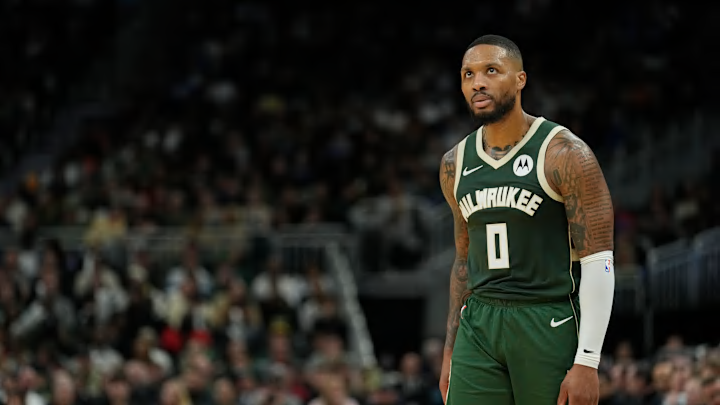From the Miami Heat mailbag…
"Is Dame playing his way out of Milwaukee or has Dame lost it? Would you trade for him without knowing for sure?"
This question came after Damian Lillard went 1 for 12 in the Milwaukee Bucks’ loss to the Memphis Grizzlies last week. Lillard followed that up by going off for 41 against the Cleveland Cavaliers on Saturday night. He’s averaging 26.2 points on 44.2% shooting this season, so it’s probably inaccurate to say he’s “lost it.”
That said, the Bucks are struggling. They are 1-5 and rumors are swirling about Giannis Antetokounmpo’s future in Milwaukee, which thrusts the status of the whole roster into question.
I don’t doubt that the Miami Heat would kick the tires on Lillard again should the Bucks listen to offers. Lillard is 34 but still capable of scoring 30-plus on any given night. If the Heat want to maximize whatever is left of Jimmy Butler’s prime, pairing him with a floor-spacer like Lillard is a great fit.
(It’s the reason why the Heat were so interested in Lillard a year ago, before the Portland Trail Blazers traded him to Milwaukee.)
Trading for Damian Lillard is complicated, and there are several factors that could prevent the Heat from doing so.
Lillard would not demand the same return he yielded for Portland a year ago. What would the Heat be willing to offer? Would they come off of Tyler Herro now? Herro is 10 years younger, making nearly $20 million less than Lillard, and thriving as he’s embraced more of an off-ball role. If the Heat were willing to include Herro, what else would it cost? How many of the young players like Jaime Jaquez Jr., Nikola Jovic and Kel’el Ware?
There’s also the matter of depth and the salary cap. The Heat would have to stack several salaries to get to Lillard’s number ($48.7 million). Doing so would drain them of multiple rotation players.
The Heat could sign free agents to minimum contracts to replace them (or promote players on two-way contracts), but doing that would take them well above the second luxury tax apron. Is that something the Heat would do for Lillard?
If Lillard suddenly became available, the Heat would have to at least make a call but not before considering the cost and ramifications of a potential deal. Just because the Heat were willing to trade for him a year ago does not necessarily mean they would be as motivated this time around. A lot has changed.
